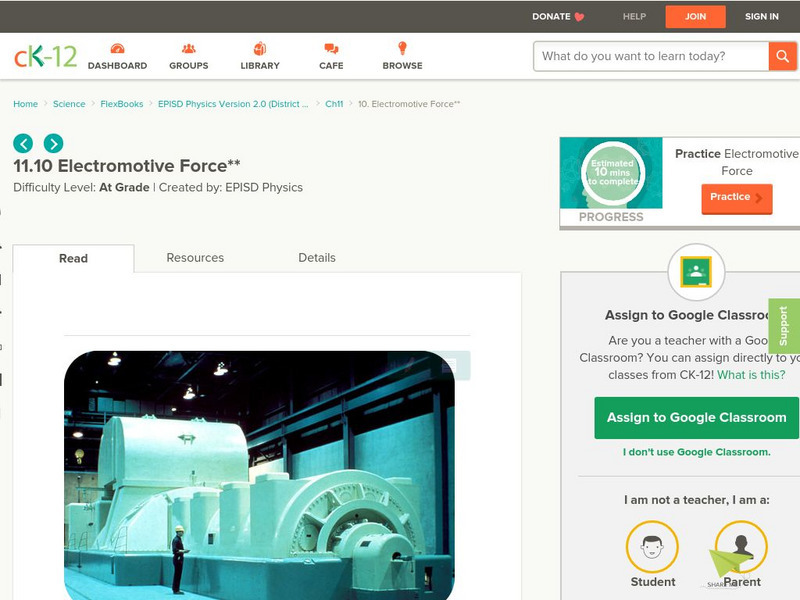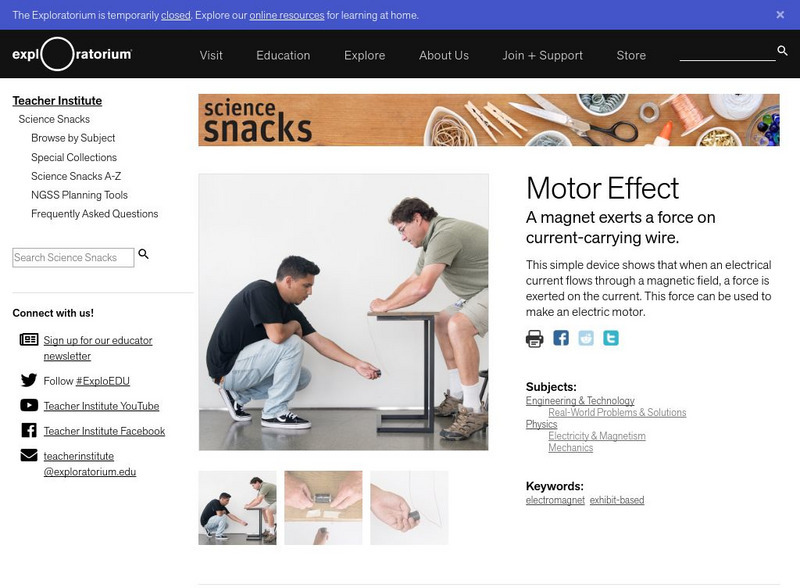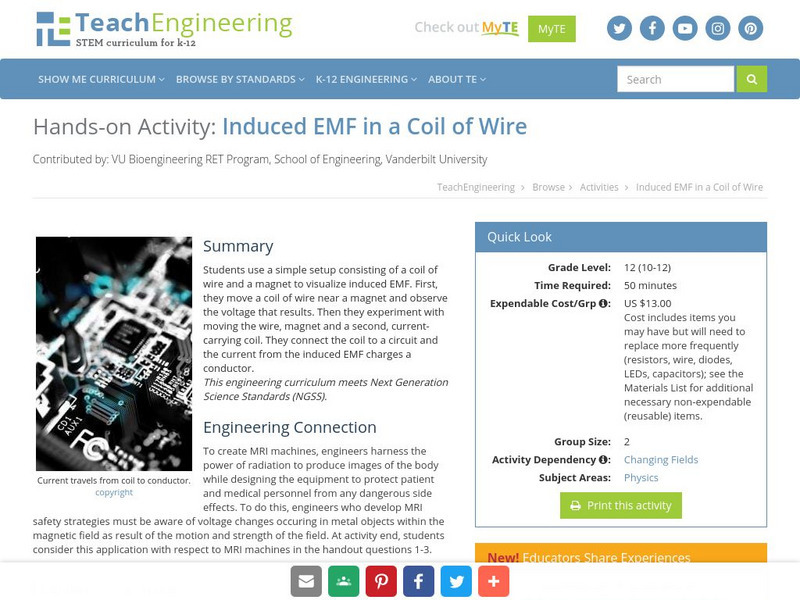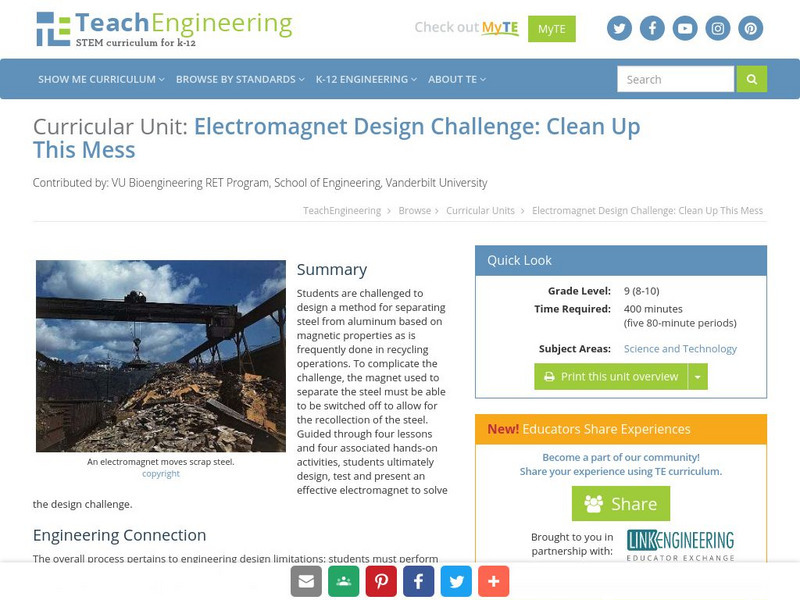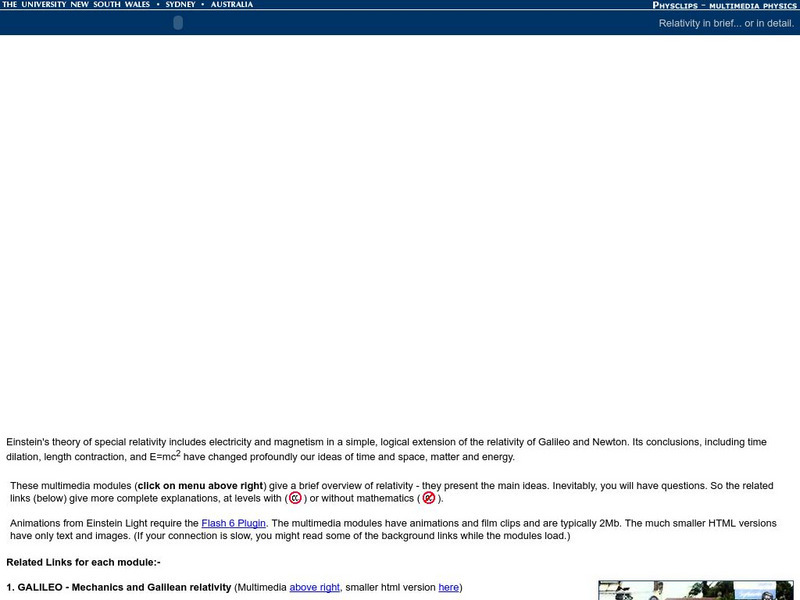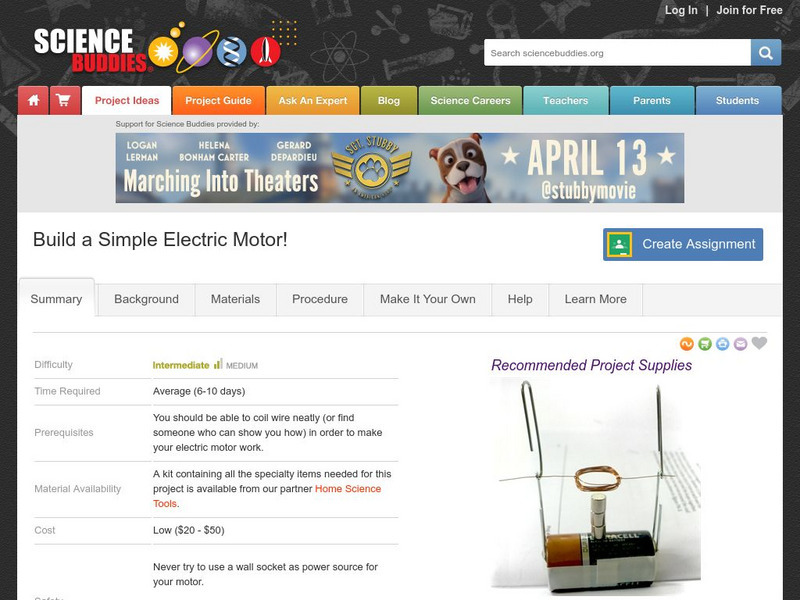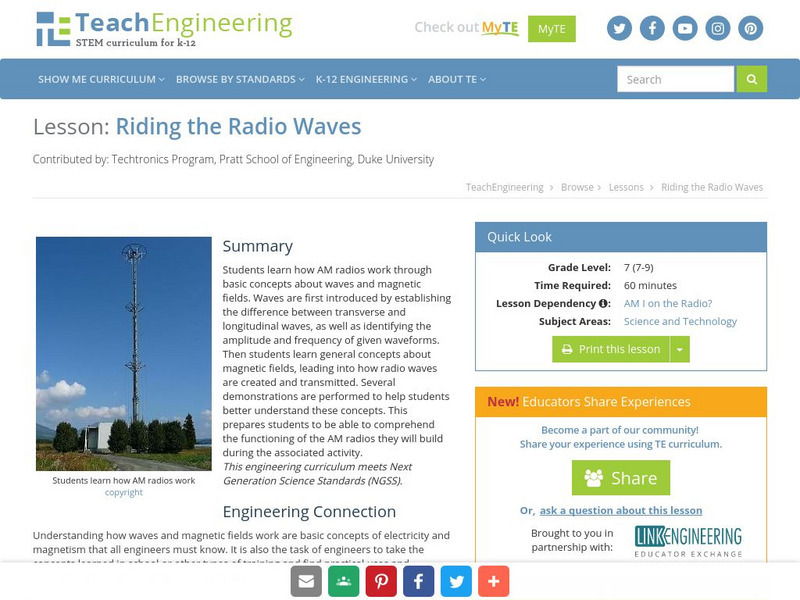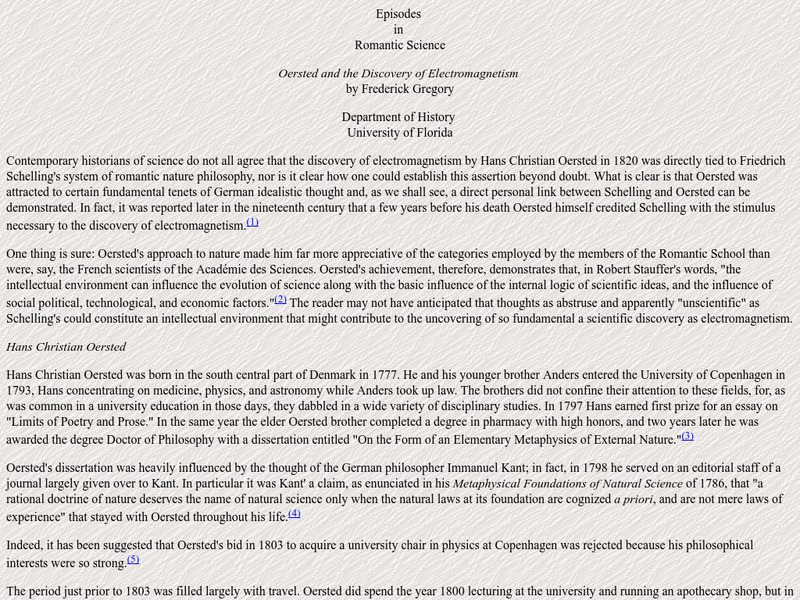CK-12 Foundation
Ck 12: Electromotive Force
[Free Registration/Login may be required to access all resource tools.] Explains what electromotive force, or EMF, is, and how to calculate the EMF of a moving wire in a magnetic field.
Exploratorium
Exploratorium: Science Snacks: Motor Effect
"A magnet exerts a force on current-carrying wire." This simple device shows how magnets affect wires with current in them, the basis of the electric motor. If you see, feel and understand this, the electric motor becomes very clear.
American Association of Physics Teachers
Com Padre Digital Library: Open Source Physics: Faraday Disk Dynamo Model
This simulation demonstrates a rotating conducting disk in a magnetic field which produces a current or a self-exciting dynamo.
Climate Literacy
Clean: Going for a Spin Making a Model Steam Turbine
Students explore how various energy sources can be used to cause a turbine to rotate and then generate electricity with a magnet.
CK-12 Foundation
Ck 12: Physics Simulation: Particle Tracks
[Free Registration/Login Required] Use this interactive simulation to understand how magnetic forces applied to charges in motion generate circular [centripetal) motion, and how the paths these particles leave provide insight into their...
Cornell University
Cornell University: Astronomy: Electromagnetism and Charge
This site from Cornell University provides a very short, very telling comparison of matter and charge. This is a good site to check out on the subject, with a chart diagram to help with further information.
Science and Mathematics Initiative for Learning Enhancement (SMILE)
Smile: Magnets, Electromagnets & Fields of Force
A teacher lesson plan which includes several student activities on magnetism, force fields, and magnetic induction. May provide an idea for a student project or lab investigation.
Science and Mathematics Initiative for Learning Enhancement (SMILE)
Smile: Introduction to Magnets (Classroom Unit)
A teacher unit which includes several hands-on activities about types of magnets, magnetism, and electrostatics. An activity designed to suit all grade levels. Many parts of the activity would be easily adaptable as a student project.
Canada Science and Technology Museum
Canada Science and Technology Museum: Materials
Does glass have magnetic properties? Test several materials, in this interactive activity, to see if they have the properties to be attracted to a magnet.
World Health Organization
World Health Organization: International Emf Project
The World Health Organization probes into the feared associations between electromagnetic fields (EMFs) and cancer. Check out "What is EMF?" for detailed summaries on what electromagnetic fields are and the possible health effects, or...
TeachEngineering
Teach Engineering: Induced Emf in a Coil of Wire
Students use a simple set up consisting of a coil of wire and a magnet to visualize induced EMF. First, students move a coil of wire near a magnet and observe the voltage that results. They then experiment with moving the wire, magnet,...
TeachEngineering
Teach Engineering: Clean Up This Mess
Students are challenged to design a method for separating steel from aluminum based on magnetic properties as is frequently done in recycling operations. To complicate the challenge, the magnet used to separate the steel must be able to...
University of New South Wales (Australia)
University of New South Wales: Einstein Light
Einstein Light highlights the Theory of Special Relativity and related topics. Learn how Galileo, Maxwell, and Einstein contributed to our knowledge of relativity, electricity, magnetism, and time by watching fun, interactive modules.
Science Buddies
Science Buddies: Spin Right 'Round With This Simple Electric Motor
If you put on clothes that were washed in a washing machine, rode in a car, ate food from a fridge, warmed up lunch in a microwave, or played a video game, you used an electric motor. Try this science fair project and you'll learn how to...
TeachEngineering
Teach Engineering: Whose Field Line Is It, Anyway?
Students teams each use a bar magnet, sheet of paper and iron shavings to reveal the field lines as they travel around a magnet. They repeat the activity with an electromagnet made by wrapping thin wire around a nail and connecting...
TeachEngineering
Teach Engineering: Riding the Radio Waves
In this instructional activity students learn how AM radios work through basic concepts about waves and magnetic fields. Waves are first introduced by establishing the difference between transverse and longitudinal waves, as well as...
Georgia Department of Education
Ga Virtual Learning: Inductance and Maxwell's Equations
In this interactive tutorial students will look at the energy stored in the magnetic field of an inductor. Self-inductance and mutual inductance will be distinguished and circuits with capacitors and inductors, or LC circuits will be...
University of Florida
University of Florida: Episodes in Romantic Science
One of the "Episodes in Romantic Science," this is as complete as a biography gets without being a book. Includes great information about Oersted and his electromagnetic work, The definitive source. Heavily footnoted with many additional...
Concord Consortium
The Concord Consortium: Molecular Workbench: Lorentz Force 3 D
Adjust the magnetic field intensity and the particle speed in this simulation to observe the affect the movement of the particle.
Science4Fun
Science4 Fun: How Electricity Is Made
Read this brief article to gain an understanding of the principle of electromagnetism, how electricity is generated, and the problem with fossil fuels.
Cosmo Learning
Cosmo Learning: Faraday's Law
A collection of video lectures covering the topic of Faraday's law taught at East Los Angeles College. In ten lectures, discover how a magnetic field interacts with an electric circuit to produce an electromotive force. Lectures vary in...
Concord Consortium
The Concord Consortium: Molecular Workbench: The Hall Effect
Adjust the magnetic field in this simulation to see how the flow of electricity is affected.
OpenSciEd
Open Sci Ed: 8.3 Forces at a Distance
This unit allows students to investigate the cause of a speaker's vibration in addition to the effect.
Canada Science and Technology Museum
Canada Science and Technology Museum: Background Information for Electricity
The Canada Science and Technology Museum answers some of the most common questions about electricity. For example, get the definition of electricity, the difference between alternating and direct currents, and learn how a fuse works.


